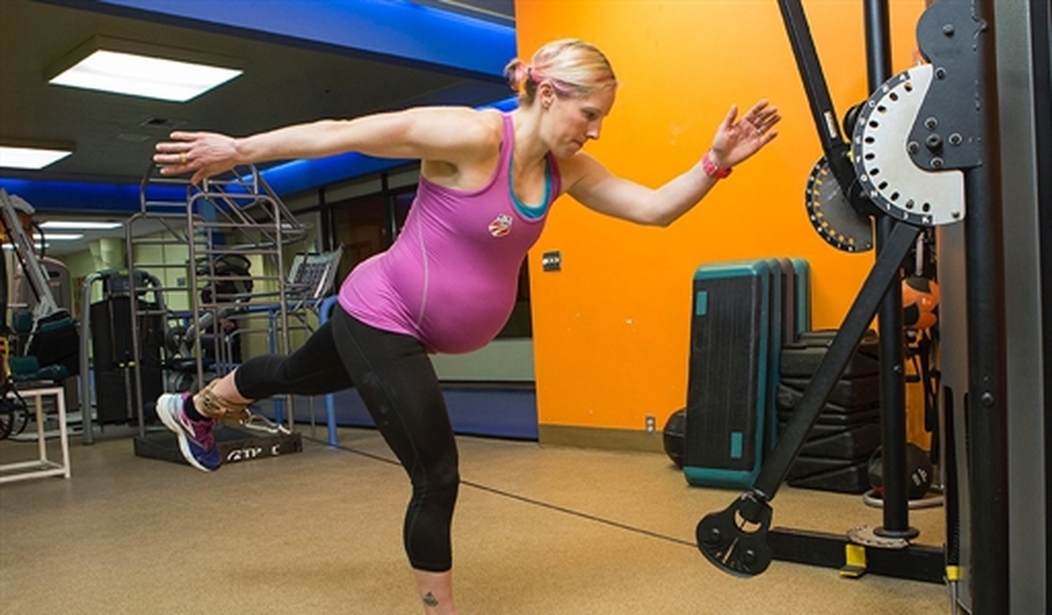Top News
The Don’t Hire Women Act?

Having a baby? There’s a new law meant for you: the Pregnant Workers Fairness Act.
America needs this law, say activists, because “pregnant workers, especially those in low-wage and physically demanding jobs, have been forced to choose between their health and a paycheck.”
In my new video, Vanessa Brown Calder, director of Family Policy at the Cato Institute, explains why this new law will make life worse for many women.
“These policies are motivated by good intentions,” says Calder. “But that doesn’t mean that the consequences of these policies will turn out well.”
Calder, who is pregnant, thinks the law will lead to fewer women being hired in the first place.
The Americans with Disabilities Act is a good example of that.
Both Democrats and Republicans applauded when President George H.W. Bush signed it. Everyone loves the ADA.
But the law hurt disabled people who want to work.
Before it passed, more disabled people got jobs, year after year. When it passed, almost 30% were in the workforce. But once the ADA passed, employment of disabled workers dropped by half!
It happened because of the job “protection.” Employers fear disability lawsuits. They’re afraid that if a disabled person doesn’t work out, they’ll never be able to fire them. Now the Pregnant Workers Fairness Act will make hiring young women risky.
“You may be a lawsuit bomb,” I say to Calder, who nods and says: “It does make women more risky and more costly to hire. Employers don’t know exactly what accommodation the woman might ask for.”
It’s safer for the employer to say, “I’m just not going to hire you. There’s no way for the government to know why I didn’t hire.”
“Companies get good at working their way around these regulations,” Calder responds.
But government officials assume their laws will do what they’re supposed to do. They also are eager to please special interest groups.
The chair of the Equal Employment Opportunity Commission went before cameras to brag that this law has support from “businesses, faith, health, women’s and civil rights organizations!”
So, what?
“Activists think of the short-term effects of the law,” says Calder. “It’s pretty easy to get behind a superficial reading of the Pregnant Workers Fairness Act and think that it could be a good idea.”
“The momentum is always for more rules,” I say.
“Oftentimes there’s guidance issued many years after the fact,” says Calder. “This is probably just the beginning.”
The growing number of rules kills jobs in several ways.
Since the rule applies to companies with 15 or more employees, it’s an incentive for companies with 14 employees to stay small.
“You get penalized as you grow,” says Calder.
“Without a law like this, who would hire someone like you?” I ask. “You might have more medical problems. You’re going to leave, for weeks at least.”
“Pregnant workers bring a lot to the table,” she responds. “Many employers see that. But when you create a one-size-fits-all policy like this, it starts to raise many employers’ concerns.”
I ask: “The Cato Institute should have the right to fire you because you got pregnant?”
“I think they should,” responds Calder. “Because I want people like me to be able to be hired in the first place.”
Exactly. I’m a stutterer. I didn’t have my stuttering under control when I applied for my first job. Had the ADA existed then, I could have demanded special accommodation. “Disability lawyers” would have been ready to protect my “rights.”
No TV station would have risked hiring me! I would have never gotten a chance.
Now the Pregnant Workers Fairness Act will kill opportunities for women.
Every Tuesday at JohnStossel.com, Stossel posts a new video about the battle between government and freedom. He is the author of “Give Me a Break: How I Exposed Hucksters, Cheats, and Scam Artists and Became the Scourge of the Liberal Media.”
Read the full article here


















